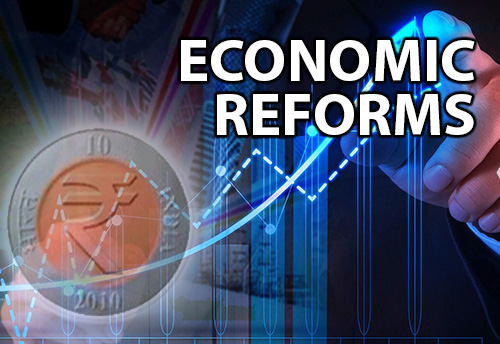Rizwan Sheikh
Foreign Direct Investment (FDI) refers to an investment made by a company or individual in one country into business interests located in another country. This type of investment involves a long-term relationship and reflects a lasting interest and control in a business enterprise in a foreign country.
The advantages of FDI for an economy include several key aspects. Firstly, FDI can contribute to economic growth by providing capital, technology, and management expertise. This infusion of resources can stimulate the host country’s economy, leading to increased production and employment opportunities. Additionally, FDI can facilitate the transfer of technology and skills to the host country, as foreign companies may bring in new technologies and business practices, ultimately benefiting the domestic workforce and industrial base. Moreover, FDI can lead to increased exports from the host country as foreign companies may utilize domestic resources and labor to manufacture goods for export, thus contributing to the country’s balance of payments and overall economic development.
However, FDI also presents certain disadvantages for an economy. Firstly, excessive reliance on foreign investment may lead to economic dependence on foreign entities, potentially undermining the sovereignty of the host country. This economic entanglement can also result in a lack of control over vital sectors and assets, raising concerns about long-term economic security. Furthermore, repatriation of profits by foreign companies can lead to a loss of capital within the host country, as a significant portion of profits may be sent back to the home country, reducing the amount of capital available for reinvestment domestically. Additionally, the entry of multinational corporations can pose a threat to local firms, creating intense competition that may potentially displace indigenous industries and lead to economic imbalances and job losses.
Hence, while FDI has the potential to bring substantial benefits to an economy through capital infusion, technology transfer, and employment generation, it is important to carefully consider and manage the potential drawbacks, such as economic dependence, profit repatriation, and competition for local industries, to ensure sustainable and balanced economic growth.
The significance of net foreign direct investment (FDI) inflows as a crucial indicator of a nation’s investment climate cannot be overstated. It serves as a reflection of the confidence of existing investors and the attractiveness of a country’s business policies. High FDI inflows signal a stable and favorable investment environment, while low inflows indicate a challenging business landscape and policies that fail to inspire investor confidence.
The recent data on net FDI inflows, particularly comparative figures concerning Pakistan and several other countries, underscores the pressing need for comprehensive economic reform in the nation. Notably, in 2023, the net FDI inflows of 10 African countries exceeded those of Pakistan, with countries like Egypt, South Africa, and Ethiopia reporting substantially higher FDI inflows. Moreover, when compared with neighboring and regional counterparts, including India, Vietnam, and China, Pakistan’s FDI inflows appear comparatively modest, highlighting a significant disparity.
Over the past 24 years, Pakistan has averaged approximately USD 2 billion in net FDI annually, totaling around USD 48 billion. However, despite a sizable population and GDP, the country’s recent net FDI for the current fiscal year stood at approximately USD 1.6 billion after factoring in outflows, a decrease from the previous year. This decline is particularly concerning as FDI typically constitutes around 3% of a country’s GDP, whereas Pakistan’s FDI currently stands at approximately 0.6%, signifying a substantial decrease and emphasizing the adverse impact of political instability on investments.
The situation in Pakistan highlights not only the need to enhance political stability but also the fundamental failure of economic policies. To remedy this, it is essential to prioritize measures aimed at bolstering policy credibility and honoring contractual commitments to create a more conducive environment for FDI. Moreover, facilitating and satisfying existing investors, both local and foreign, is paramount, as sustainable efforts to attract FDI hinge upon the satisfaction of these key stakeholders. However, the current state of affairs reflects a cycle of ad hoc decision-making and crisis management, underscoring the absence of a cohesive national strategy or vision.
The lack of continuity in economic policies and long-term planning further exacerbates the challenges faced by the country. Pakistan urgently requires a long-term “Charter for Business,” akin to a constitution in sanctity, which transcends political changes and biases. This comprehensive planning framework should integrate the perspectives and vision of all stakeholders, ensuring coverage of the investment climate and future projections. Without a unified country strategy, effective policies and sustainable progress across various sectors, including education, health, economy, investment, and infrastructure, remain unattainable, reflecting a concerning lack of understanding and competence.
In light of the turbulent investment landscape and the challenges faced by existing investors, it is imperative for Pakistan to prioritize transparency and undertake a candid assessment of the existing conditions. Decisive action is urgently required, with a clear focus on economic reform and the development of a cohesive and comprehensive long-term strategy to foster sustainable economic growth and attract much-needed foreign investment.
















